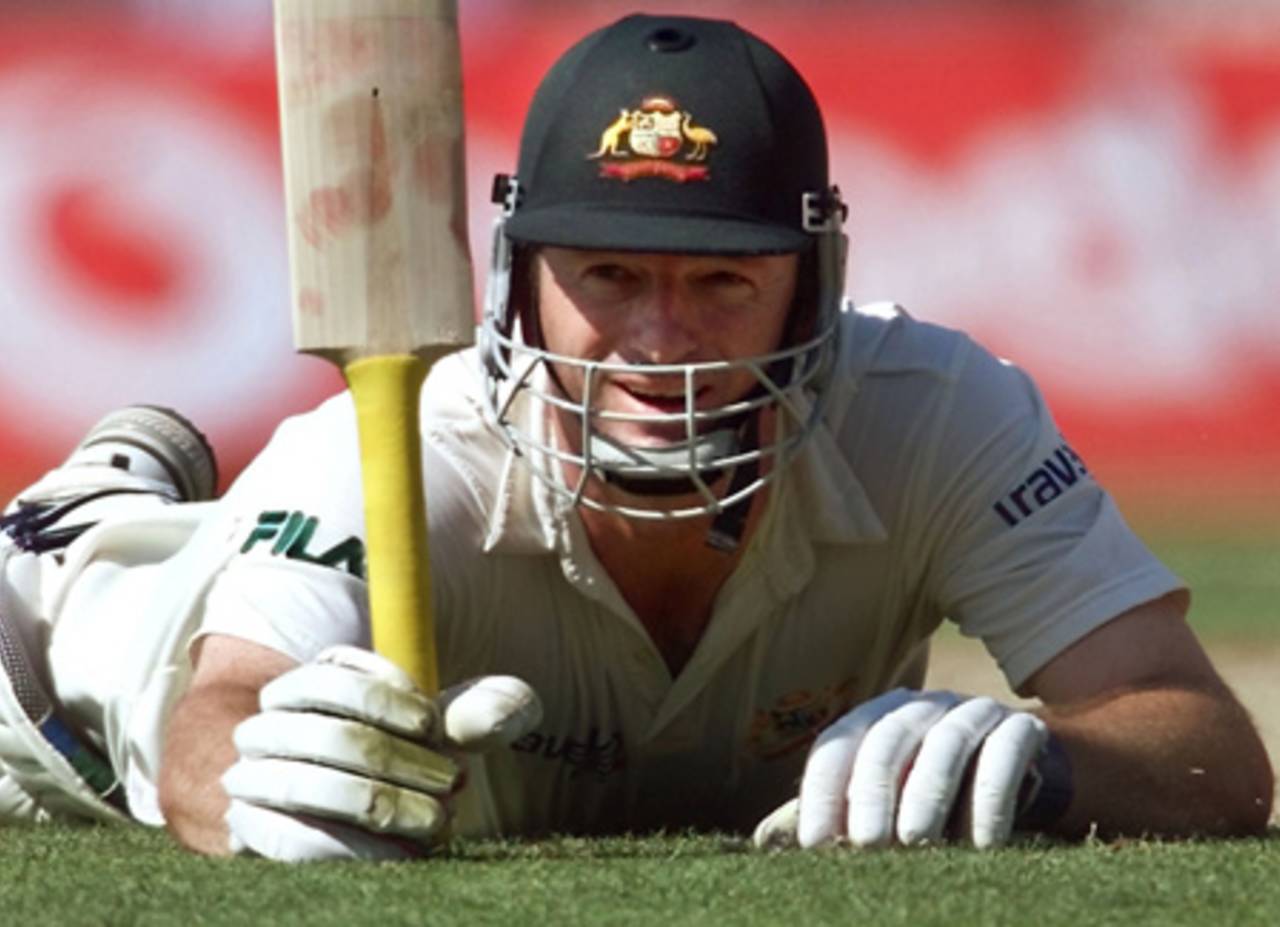A tale of two Ashes books
Two college professors, of politics and philosophy, in two continents, connect through their common love of cricket
Samir Chopra
28-Aug-2013

The context and embellishments that Norman Geras provides in his books make the description of the recent Ashes series enjoyable • Paul McGregor/Getty Images
Norman Geras, professor emeritus of politics at the University of Manchester, is known to most students of political science as a political theorist, a prolific author with books on, among other things, Karl Marx, Rosa Luxemburg and Richard Rorty; and as a former member of the editorial boards of the New Left Review and the Socialist Register. He is also a blogger and a cricket fan. In this last capacity, he is the author of two books on the Ashes - The Ashes '97: The View from the Boundary (with Ian Holliday) and Men of Waugh: Ashes 2001. I have copies of both and have read them with pleasure. The story of how I came by them tells us, I think, something about how cricket, especially in this modern age, lets us make connections with our fellow travellers in fandom.
I chanced upon Geras' blog after he and I had a short online exchange in response to a minor quasi-theological debate triggered by the Israeli philosopher Yoram Hazony. I wrote a post responding to a piece by Hazony in the New York Times; so did Norm. A colleague at Brooklyn College sent me Norman's post, and I emailed or tweeted him, pointing him to mine. I also checked out the rest of Norman's blog. There I found some cricket.
On his blog, Geras maintains a section titled "Memories of Cricket". It contains a series of recollections of incidents, notable and not so notable, in the history of cricket, with a twist: each personal recounting is supplemented by descriptions of the same event from books in Geras' voluminous collection. The motivation for the series came partly from John Arlott; it has now grown into a rich collection, one well worth perusing and savouring at leisure.
Shortly thereafter, when the Ashes started, in the midst of a Twitter conversation, Norm asked me if I would contribute a memory of my own to the collection. I agreed, and wrote one of an event I had heard and read about for years before I ever saw it on video: David Hookes' five fours off Tony Grieg in the Centenary Test. As a token of his appreciation, Norm offered to send me copies of his two books on the Ashes. I accepted them with gratitude.
Because these series took place fairly recently, and because I followed them very closely, the actual match descriptions were not as interesting for me as was the surrounding context and the embellishments that can only be provided by a spectator at the ground. For both series, Norm watched every single day of the series at the ground (in the company of a friend). He then wrote up his match reports at the end of each day. For the 1997 series, his co-author, Ian Holliday, was his companion, and contributed his reports to the book as well. Both sets of reports show an appreciation for the game that can only belong to the true fan.
Norm is South African by birth and has been living in the UK for many years, but he is an unabashed fan of the Australian team. This partisanship infects his reports in all the right ways; he is anxious and enthusiastic about the Australians, and occasionally appreciative of the English team. He likes watching cricket in person, and dislikes the modern spend-a-day-at-the-cricket-to-drink-beer variety of spectator; the books, therefore, include some masterfully cranky descriptions of those who ruin a game for us with their loutish behaviour. He wants the Australians to win, and worries about their losing from even strong positions. As might be expected, he thinks Adam Gilchrist's declaration at Headingley in 2001 was misguided, and says just that in an acute dissection of all its faults. (The books include scorecards of all games and some miscellaneous statistics; the most interesting of these detail Australia's supremacy in the Ashes till that point in time.)
The books were easy reads. They came with a thoughtful personal inscription, and now they sit on my shelves, along with the rest of my cricket collection. I like the stories in, and behind, them.
Samir Chopra lives in Brooklyn and teaches Philosophy at the City University of New York. He tweets here